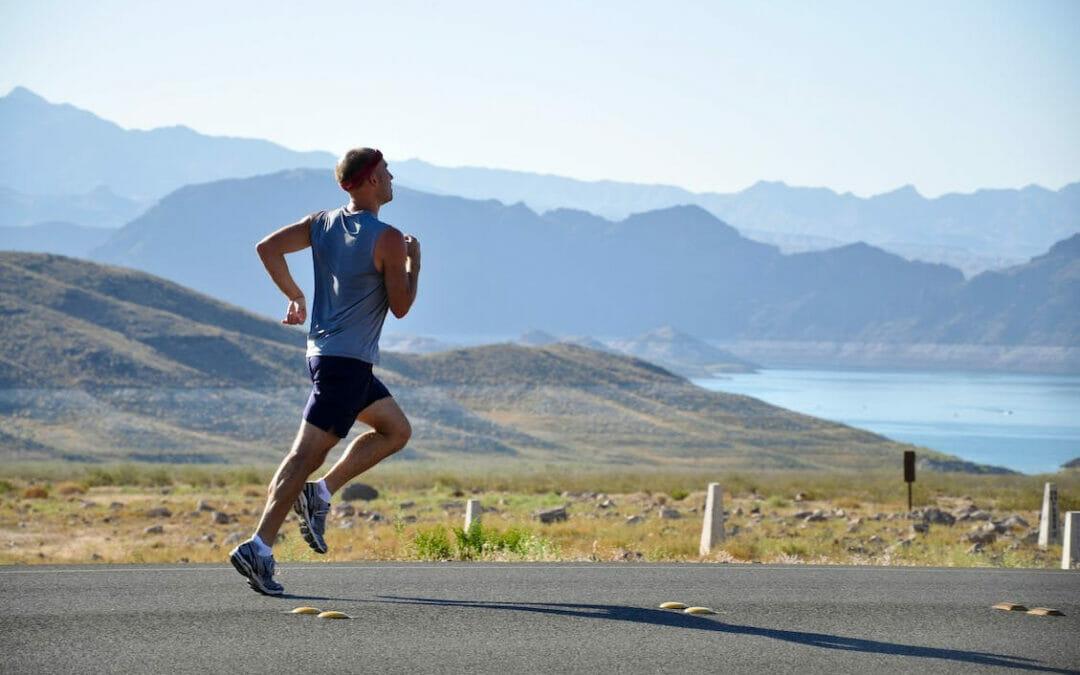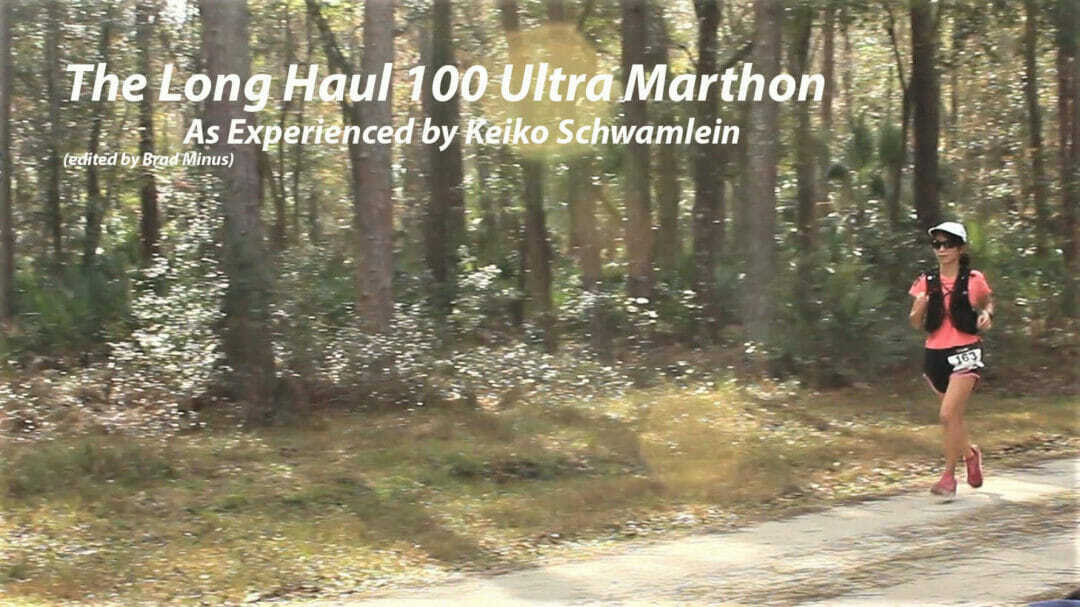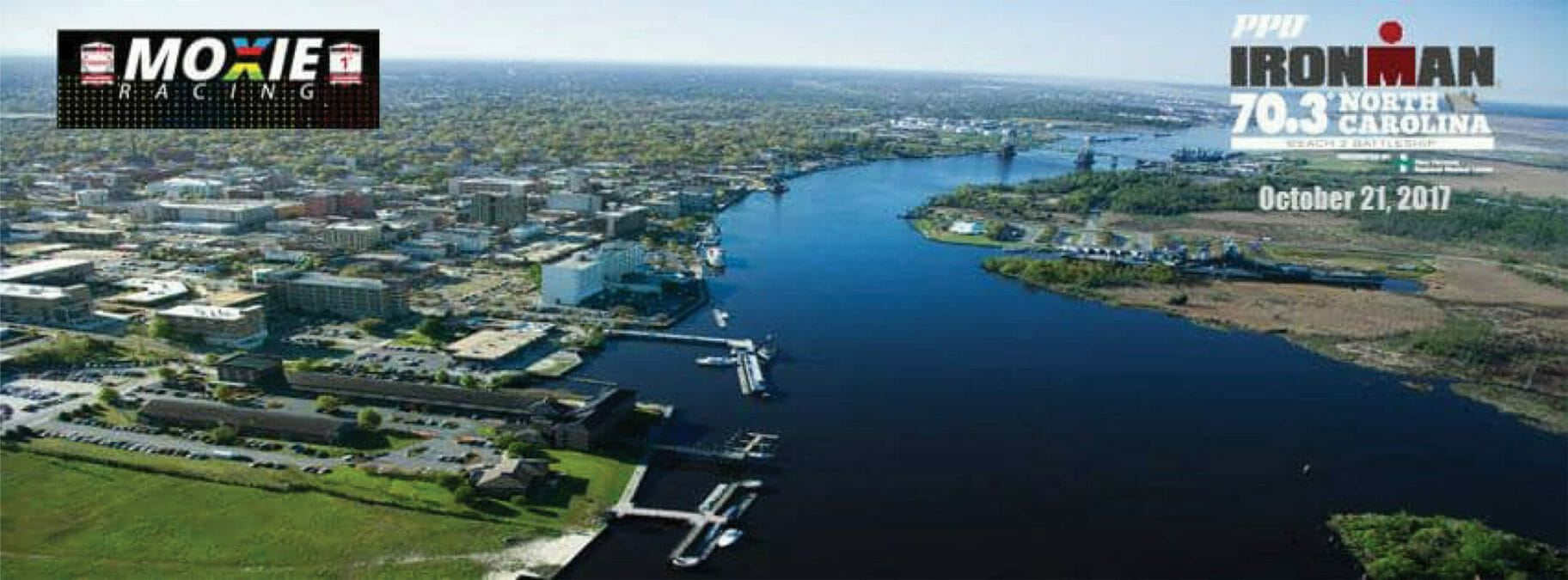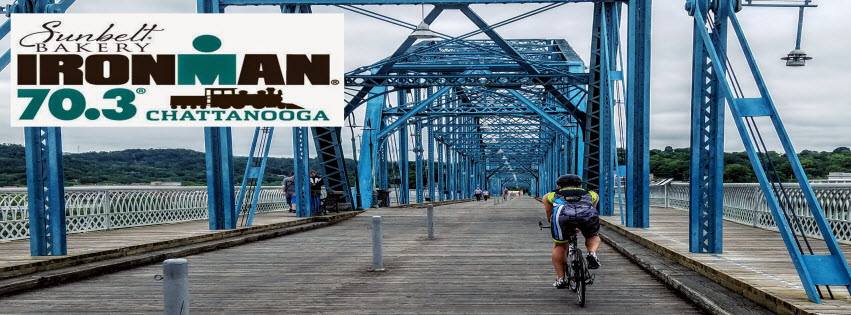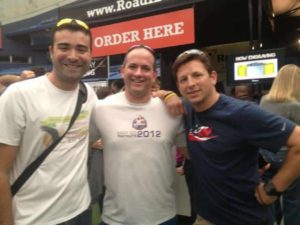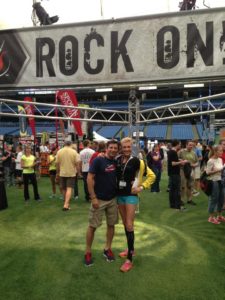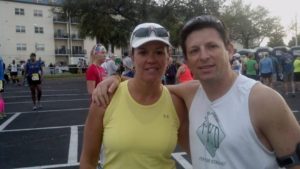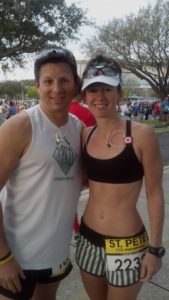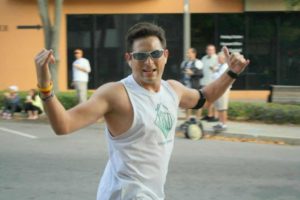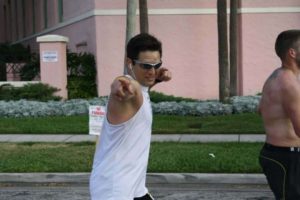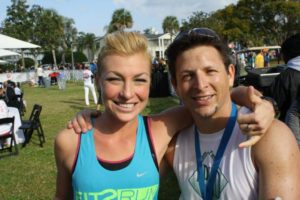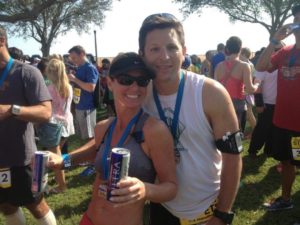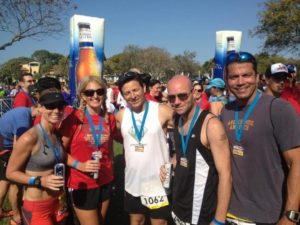
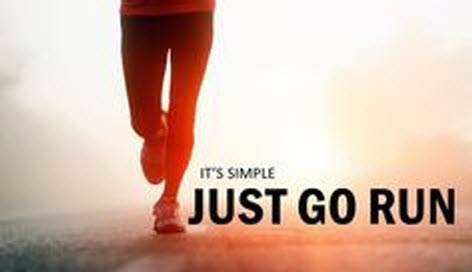
Workout Wednesday: Run Strength
Happy Hump Day! Workout Wednesday’s will consist of favorite workout of mine that I either have prescribed to my clients or have been assigned by MY Coach. It might also be a favorite of yours. Feel free to send me any workouts you like. There will be an objective for every workout for specificity.
Run Strength – Hill Repeats
I am not a huge fan of weights or being in the gym. As the summer wore on and Florida continued to increase in heat I found myself spending more and more time in the gym and on the treadmill, but I still prefer to be outside. This workout will work leg strength as a replacement for a gym resistance workout or a supplement to. It can be done either on the Treadmill or outside with a hill that takes 2-3 minutes to run up, or here in Florida we use parking garages.
WU (Warm-up): Run Drills & Dynamic Stretching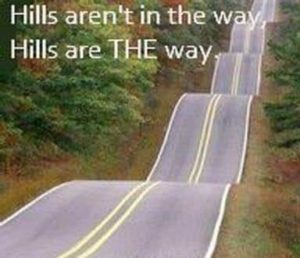
1-2 miles @ conversational pace
MS (Main Set):
Hill Bounders on uphill
Recover for 30 sec – 2 minutes
Speed over strides on Downhill
Repeat for up to 30 minutes
CD (Cool Down): 1-2 miles @ conversational pace
Lunges & Static Stretches
Objective: Leg strength, Aerobic capacity, Form Development & Confidence on Hills
Rate of Perceived Exertion (RPE): 5-7 on the uphills (Talking should be very difficult)
Description: Run a hilly course. Do not try to run fast on the uphills but rather concentrate on a good knee lift, strong arm swing, uplifted chest and full push-off extension in your back leg. Practice running efficiently on the downhills with high turnover and enough of a forward lean that your front leg lands directly under you.
Hill Bounders: go up the hill with a bouncy action and a good posture, concentrating on a good knee lift and arm swing with a “snap” with your ankle. You should be thinking Spring up the hill. Jog until recovered at the top.
Speed Over striders: Run down the hill with out breaking but increasing your cadence with the steepness of the hill. Instead of completely striding out elongating your stride, focus on increasing your cadence with a normal stride.
Biggest Mistakes: Running too fast up the hill rather than concentrating on form. Running too hard up the hill and getting into too much oxygen debt. This is not desirable in this phase .Putting more stress on the legs than they are ready for with too much bounding or downhill running and getting injured. Precipitating your peak with repeated speed bursts. Some people tend to develop speed very quickly once they start doing the hill circuit. If this is the case, go very easy with downhill striding and on the stride-outs. You’ll still have plenty of time to develop speed to maximum. Premature speed development would only lead to premature peaking and this should be avoided.
Warning: The first week of hill training is one of the times where injury is most likely to occur. This is a very demanding exercise, so be overly cautious and feel your way gradually. After about 2 weeks in this phase your legs could feel very tired and you may feel you’re actually slower. This is normal and will pass within a couple of weeks of consistently completing the workout.
I hope you enjoy this one. I know I do.
What kind of workout do you do for run strength?
Carpe Vitam!
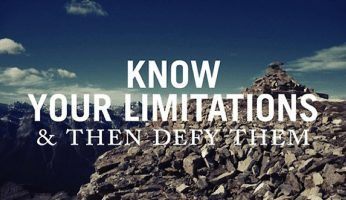
Tri Tip Tuesday: My MOST Important Running Tip
On Tuesdays and/or Thursdays, I will do my best to give one simple fitness, triathlon or running tip, trick or piece of information that will provide some value to in either helping you to become more efficient, prevent injury, increase performance, have more fun or at the minimum give a review of knowledge that might not have crossed your path in a some time.
I find myself observing other runners while running and sometimes just hanging out here in Tampa. Due to the weather here lending itself to year-round training, I have no shortage of material to choose from.
My #1 Most Important Run Tip
My coaching practice’s number one priority is form, technique and injury prevention, so I routinely use other runners, with my clients to reinforce the form training I have provided. (Sorry, Tampa runners. If you happen to pass by me with a client, most likely you have been observed and surveyed for comparative analysis.)
With all of my observations, the number one issue that I see are runners that sit in the bucket. Of course, the question most people ask is what does sitting in the bucket mean?
Basically, it’s when the glutes(or bum) are not in line with the torso. The body looks like an “L” from the torso to the hamstrings. Natural running which when learned is much easier, more efficient and greatly reduces impact on the joints. The torso hips, glutes and ankles form a straight line.
[table “2” not found /]
The interesting thing is, that running should be instinctual right? Unfortunately, not anymore. Sociological factors have played into our bodies to a point where most Americans, cannot just decide to take up running without going through periods of injury.
For example, sitting at a desk all day will tighten the hip flexors so that it becomes extremely difficult to push the hips under the torso. The same thing is evident for playing video games on the couch for long periods of time.
The figure on the left is actually still a lot better than I have noticed out and about. The torso is still tall and the chest is still has a little bit of lean to it causing forward motion. A lot of runners I notice, sit in the bucket and lean back. What is this doing? Basically, gravity is working against the runner. The objective is forward motion but the glutes and the torso are sitting back, so in essence, the body and gravity are working against itself.
Another perception you will see is the heel strike of the runner. When that heel strikes the ground the impact reverberates all the way from the ankle through the legs, spine, neck shoulders and head. This is where most of the injuries take place.
By simply starting to incorporate, tilting the hips under the torso and leaning from the ankles instead of the waste, the body will start allowing gravity to be used instead of the legs as the sole source of momentum. Suddenly, the feet are striking the ground underneath the center of gravity and only the calf down to the metatarsals absorb the majority of the impact from the ground.
I continue to instill in my clients, running is powered by the core, not the legs. Use gravity as momentum and allow the legs to just go for the ride. To remain consistent, the core must be strengthened and hip flexors stretched to keep the glutes from returning to the bucket.
There are many techniques to help modify the behavior to allow for an efficient, safe and effective change of form. All it takes it the will to want to change and get better and you will.
The #1 tip – get out of the bucket.
Are you running in the bucket?
Did this information shed some light on any area of your running that might be in need of improvement?
Carpe Vitam!
(Seize Life!)
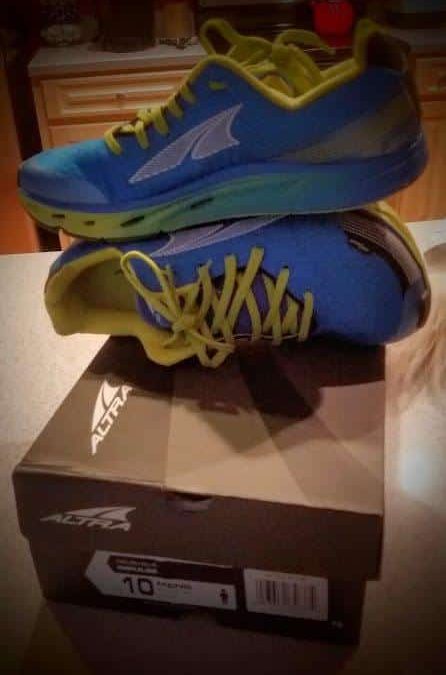
Goof Review: The Altra Impulse

Are you seeing a pattern yet? Yes, I am becoming a huge fan of the 6 year-old running shoe company known as Altra. As I have been instructing clients in form techniques, and have found that most of the models Altra manufactures, lend themselves to my favorite principles.
The Altra Impulse is no different.
What I like about the Altra Impulse
As with all of Altra’s models, my favorite advantage is their FootShape™ Toe Box. This is the incomparable wide toe box that Altra is known for. The toe box is makes any of Altra’s models recognizable from a good distance away. That is how wide it is. I enjoy the ability splay my toes and have my feet firmly hit the ground without them being cramped up. Wider toe boxes also allow the feet to develop more strength because the shoe is not tightening around the ball of the foot or the toes. The toes can move around, and tackle all kinds of terrain.
As you can see from the x-ray below, the amount of splay the toes are allowed in the Altra vs a traditional toe box. Imagine having access to the full splay of your foot while you run. What is amazing is that most runners do not even realize the limits that a traditional toe box causes. (Hmm, maybe there is an idea for a full post.)

The Altra Impulse is no different in this department. The FootShape™ toe box has been incorporated and has all the comforts of the other models I have run in.
I love the Zero Drop™ technology that Altra incorporates. When I run I have the ability  to utilize the full power and flexibility of my calf not to mention I can run as if I was barefoot, as our bodies were intended. Most traditional running shoes have a 12mm heel drop. This means that the heel is 12mm above the ball of the foot.
to utilize the full power and flexibility of my calf not to mention I can run as if I was barefoot, as our bodies were intended. Most traditional running shoes have a 12mm heel drop. This means that the heel is 12mm above the ball of the foot.
When we are barefoot, the heel and the ball of the foot are equal which is a Zero Drop™. This also helps with heel striking. Have you ever tried to heel strike while running barefoot? Even if you are a regular heel striker in shoes, it is almost impossible to heel strike while bare foot running. A huge effort has to be made to do that.
So, why runners continue to heel strike? If your heel is more cushioned in the shoe, then of course you will want to hit that area first. (Another post may be needed to explain a little more on this too…stay tuned.)
I love the Innerflex™ which are grooves at the bottom that create a more flexible sole.
One of the huge differences with the Altra Impulse is that they also incorporated their patented StabiliPod™ technology along side the Innerflex™. Now you have a stability shoe that is also somewhat flexible.
I have decided to put this feature as a liked feature more for others than myself. As a pure neutral runner I prefer to work allowing my body to support me, not my shoe, but Altra is marketing this shoe not only for running and triathlon, but for cross training as well.
The StabiliPod™ technology does really help in moving laterally, which is not something that is usual for runners, and especially those of us whom usually stick to the pavement. This is why I do like this feature.
 My absolute favorite feature of this shoe are the drainage holes in the sole. My very last test run with the impulse was an 8 mile run, immediately following a huge rain storm here in Tampa, Florida.
My absolute favorite feature of this shoe are the drainage holes in the sole. My very last test run with the impulse was an 8 mile run, immediately following a huge rain storm here in Tampa, Florida.
My route took me through numerous ankle deep puddles and while my socks remained damp, the shoe was clear of water within a few yards of the puddle. There was no squish from the sole of the shoe or my sock because as my foot pushed down on the shoe, the holes squeezed water out the holes. No more blisters from soaked uppers and water log socks release water as well.
The Altra Impulse also continues with Altra’s A-Bound™/EVA blend compound which sits directly under the foot and adds a return of energy and reduces ground impact.
The upper is a light material and does have a noticeable difference from the other models. The tongue and laces are curved with the shape of the shoe which differs from the straight tongue of traditional running shoes.

I actually enjoyed this new feature. The fit of the shoe felt more comfortable with the tongue falling in the same curve as my foot.
I rarely run without socks, but I did end up having to do go out for a couple of miles one day without socks, and they were extremely comfortable. While the upper is not seamless it is very close. There are only a couple of seems that surround the tongue, but they are covered with a light fabric that helps reduce any friction.
What I wasn’t so crazy about
This is probably a very individual issue, but even though I sized up to a 10 from a 9 and a-half, after a few miles my toes still ended up moving forward till I they hit the front of the shoe. This probably has to do with the fact that I only lace my shoes tight enough to lock in my heel.
If you like your shoes laced up tight this probably will not be an issue.
The price point for the Altra Impulse is $120 dollars, which while competitive in the market place it still is a little expensive. In this day and age where people are scrounging for liquidity, I really would like to see at least one company come out with a quality shoe that retails for under $80. Of course that is my opinion and my opinion only.
How did the Altra Impulse Rate?
Quality – 4/5
Upper – 5/5
Outsole – 5/5
Flexibility – 4/5
Comfort –5/5
Appearance – 4/5
Cost – 3/5
Overall – 4.2/5
Have you ever run in an Altra Running Shoe?
What were your experiences?
Which model do you like best?
Carpe Vitam!
(Seize Life!)
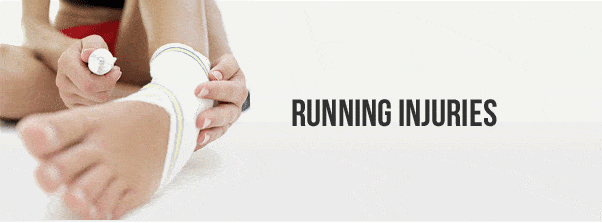
The Goof’s Guide to Common Injuries and Prevention
I believe I have started to write this post on injuries, a number of times, trying to be as clear as possible without seeming conceited or that the information I am giving is absolute. That being said I am giving this disclaimer:
The information in this post comes from experience, my personal research and conversations with Physical Therapists, Bio-mechanical experts, Orthopedists and other athletes. I am not a physician or medical expert, so please take this information as opinion based on cognitive research. Also, there is an exception to every rule and another explanation. I do welcome comments that give constructive criticism, but I make mention to this disclaimer first.
What causes injuries?
You might be surprised to hear that there are only two reasons runners (and other athletes) get injured; accidents and imbalance. Accidents are obvious right? For example; rolling the 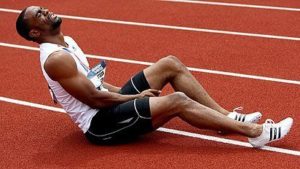 ankle stepping off a curb, falling, being hit by a bicycle, etc.
ankle stepping off a curb, falling, being hit by a bicycle, etc.
Imbalance will cover the why’s of the rest of the injuries. The human body is designed for every system to work in synergy, therefore when one piece of the puzzle is not operating a full capacity or efficiently, the other systems have to do more work. This is when the imbalance occurs.
When talking with Physical Therapists and Bio-mechanical experts I was shocked at some of the stories I heard. One story I heard was of a football player who was training, running 100s up and down the field carrying a ball. He had extended his shoulder just barely beyond its usual range of motion, and he ended up with severe pain in his opposite quadricep. “What?!!!!” was my initial reaction, however, I was then educated on the connective tissue (ligaments, tendons etc) which can be traced from the very top of our skull, down through our torso and into the extremities. Everything is connected.
Common Injuries
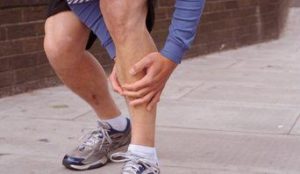
As another example, one of the most popular injuries for newer runners are the dreaded shin splints or medial tibial stress syndrome (MTSS).
Scientifically it is caused tiny micro tears of the fibers connecting the medial soleus fascia through the periosteum of the tibia where it inserts into the bone. Due to the soleus becoming so week that the constriction starts to bow the tibia. In more layman’s terms, the calf becomes so tight due to weakness and inflexibility, that the connective tissue pulls on the bone. (There is some physiological proof and complaints that more runners are getting shin splints and other injuries due to training in calf sleeves and other compression gear, but I will address this in another post.)
This same weakness, fatigue in the calf muscle can also cause another popular injury. Plantar Faciitis. In this case, instead of the connective tissue weakening through to the soleus is pulls on the plantar fascia causing inflammation which can be debilitating.
An injury can be traced either by the athlete themselves or by a professional to a point of imbalance. Most likely somewhere within the full spectrum of the athletes, body, behavior and, do I dear say it, attitude.
How can injuries be prevented?
As a coach and trainer, my first rule, and one that I increasingly live by, is “Do no harm.” Therefore, I am always asking questions starting at a high level and continuing to get more specific. (The examples below are catered more toward running, but can be used in any sport.)
Planning
- Is the effort balanced through each week? (So, no high intensity days back to back)
- Is the volume balanced? (No consecutive high mileage days)
- Is the duration balancing?
- Is there enough recovery?
- Does the periodization allow for peaking at race time, but still allow for enough rest prior to the race?
Strength Training
- At what time in the plan does strength training make sense?
- This can be critical. If the strength routines are not designed to not only strengthen the muscles used for the sport, but strengthen them for the way they will be utilized, it can be detrimental. For example: Heavy squats for a runner. What is targeted? The glutes, and hamstrings. How are they being utilized in a downward and upward motion causing the hamstrings and glutes to gain size in that direction. How do we run? In a forward motion right? Well if there is more pull on the glutes in the sitting position gravity will work to pull backwards. That is working against what we want. It would be better to do air squats or light dumbbell squats where the motion is more forward which would be utilizing the muscle the right way.
- Are the exercises within the workouts specifically designed to strengthen a muscle, or group of muscles, in the same way they are utilized within the sport?
- Are the intensities, duration, reps and sets balanceing within the weeks of that period in the plan?
- At what time in the plan does strength training make sense?
Form and Technique
- Does the plan take into account work on form and technique either as a full workout or within workouts?
- Is it enough? Or Is it too much? (This is obviously specific to the athlete)
- When looking at the athlete do they look symmetrical? Are there any imbalances to the eye? (over-pronator, supinator, flares,)
- Is the athlete in the right shoes and equipment?
Nutrition
- Is the nutrition in strategic balance, fueling the muscles properly for the sport?
- Is there enough calories? Are there too many calories? Are the calories nutritional dense?
Mindset
- Is this the right time in the athletes life for this race?
- Do they have a support system?
- is the plan fitting in the athletes life with minimal impact, or is there planning for the impacts ahead of time?
- What kind of attitude does the athlete have towards training and does the plan fit that attitude? Or should there be an adjusting of attitude?
There are definitely more questions I ask, however, I think these examples give a good idea of why balance is so important.
The term “overuse” is being used quite a bit, but what is it? It’s an imbalance of planning or lacking thereof. Tracing Injuries is completed from the highest level which would be the training plan, all the way down to the balance of strength and flexibility within the connective tissue of the body. Personally, I think it is amazing that on one hand our bodies can endure a lot, but if we don’t notice those little weaknesses, it will create an imbalance that could cause and injury that may or may not keep us from doing what we love most.
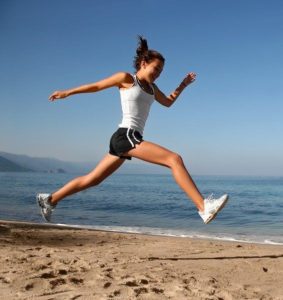
Balanced Plan -> Period -> Weeks -> Workouts -> Balanced Form -> Body -> Mind
Carpe Viam!

Rock n’ Roll St Pete Race Recap…Lessons Re-Learned
The crazy thing about not running “Best Damn Race”, was I felt like I needed another race to replace it. It wasn’t very long after I got home on Saturday, that I had typed in the URL for the Rock n’ Roll series and registered for the Rock N’ Roll St. Petersburg Half-Marathon. I have no idea what the driving need was. I have plenty of races on the calendar, so what was another half-marathon? I decided to chalk it up to the hype of BDR and the fact I wanted to race. Is that a distinctive trait in all endurance athletes? I have no idea. I humbly request that you take a few seconds, put yourself in my shoes and let me know if you think you would’ve done the same thing.
I always get excited to go to the expos. It isn’t the free stuff, or the vendors, it is the aura, the environment and the excitement of the race. This expo was no different. I wasn’t excited about any of the vendors or the new technologies, I was just excited to be there and take it all in.
Road ID did something new this year. They were engraving on-site. This was the first event I attended where this was an option. What a great idea, and it was so easy. Several kiosks were set up with their software running on it and all that had to be done, was pick the product (wrist band, dog tag, ankle band, etc), type the content of the engraving, slide your card to pay for it and they engraved it for you
right there. That was my exciting highlight of the expo, besides seeing my friend Kat(Sneakers & Fingerpaints) volunteering with Brooks and Jessica Crate hanging out with Powerbar.
After hanging out with Pete and the gang and seeing a lot of friends at the expo, it was time to head home and chill out for the night. Afterall, not only was I at the expo but I also did a little training ride on the bridges of Clearwater.
The next morning brought on the same excitement as always. I didn’t wake up with the overall feeling of competing, I was more content with the positive anxiety rolling through my body at the idea of running. Period. I love races like this, especially since when I walk around either the start or finish I always seem to find someone I know.
Driving to the event was not an issue. My plan was to just find a place near Tropicana field, on the street or a cheep garage between the start and finish line, but at the last second I decided I really didn’t want to deal with it, so I ended up parking at the Trop for fifteen bucks. This is one of the things I am not crazy about with the Rock n’ Roll race series. Everything is an extra charge. $15 dollars to park at the expo, $15 to park at the race, $5 for a shuttle from the finish line back to the start, $1 per runner you want to track, $5 for the runner to allow others to track and not to mention the $110 race fee. I do enjoy the local races just for the fact they are usually all-inclusive. Best Damn Race was the cure for all of this. One price which even at full price was cheaper ($70), and it included parking, all the good food you can eat, and all the beer you could drink, but I digress.
My first perception was that this race was already increasingly superior to last year, at least for me, because mother nature was giving us a beautiful 57 degrees that morning vs my last experience with the race which was a very cold 33 degrees. This for me was absolutely perfect. The temperature would rise but by the time I finished it still would not have hit 70. A small breeze filled the air with a clean scent, but I could not consider it wind. Even though it was still a little chilly I decided to tough out the wait for the start in just my race attire instead of bringing anything extra for gear check. As I turned the corner around Tropicana Field the start-line events came into my line of sight. There, looking down on the parking lot, were three huge banks of port o’ lets, a few tents for info, volunteers, water and food, and of course the corrals. My heart rate increased a little as the anxiety started to ramp up.
The Mini-Marathon was starting first, which was a 5k, and then the main event, the Half-Marathon, would start about 25 minutes later. Making my way into the arena, recognizable faces started coming into
view. This running community, no matter how much publicity it gets, is still relatively small, so racing seems to promote seeing the same faces at most of the events. Even though I didn’t know a lot of the athletes by name they were recognizable, but of course it is not uncommon for someone to come up behind you and give you a big hug, or tap you on the shoulder to say hi. I ran into Margie and her friend she was running with, as well as Cheryl, Stephanie, Mike, Wibke, and a bunch of others which calmed me down tremendously. I decided that I would race this for fun and just let my legs decide what they were going to do. What I decided and what happened were two totally separate ideas.
Around 7:25 the corrals were filled and as I was bib number 1062 I was to start in corral number 1. The crowd noise was diminished to a slight whisper as this 13-year-old girl gave us a beautiful rendition of our national anthem, the gun went off and we were on our way.
My legs felt really good, my breath flowed easy and my form fell into place. I was listening to my iPod, but the volume was low enough for it to be drowned out by the local bands that were playing on the course every couple of miles. As I passed the first mile, I looked down at my Garmin which read 7:28 which was around 10 seconds behind the race clock, which made sense, but the pace was a little fast. I decided to keep on going and let my legs decide. My Garmin alerted me of my 7:30 pace at the end of the 2nd mile which turned out to be about a tenth of a mile
before I reached the race clock. This is not uncommon with races. The GPS signal grabs satellite data every three seconds and within a city, sometimes it does not make a connection for a few passes depending on buildings, and a variety of signals that can interfere with the accuracy. I where a foot pod to record my cadence as well as fill the gaps when the satellite is not available, but the algorithm that fills the gaps will not do so until I have recorded the history at the end of the event.
When I crossed mile three at a time very close to my 5k PR time, I knew that I was at a pace that was way too fast for my fitness level at this time, but I was feeling really good, so against my better judgement I continued. My pace stuck at a range in-between 7:26-7:40 until mile 8 and that is when it caught up with me. Even though I was sticking to my nutrition, I started to feel the ache in my legs, and the tightness in my chest. I got a hold of my breathing checked my posture, leaned in a little more and kept going, but unfortunately, my pace for the next 3 miles steadily increased. I was pretty consistent with the people around me up to this point. I played cat & mouse with a few of the runners, and I was passing people here and there and feeling pretty good about it, but for the last few miles, I would start to get passed. Between, nine and ten, I saw Ben
Mena on the side taking photos. A familiar face usually helps, so I turned toward him and mucked for the shot, pretending I felt a lot better than I actually did. My legs started getting heavier as we headed toward a small bridge, and I noticed Jessica Crate heading the opposite way toward the finish line, along with a lot of other familiar faces in that elite athlete group. Just on the other side of the bridge my watch alerted me to mile 11 and a lap time of 8:31. Out loud I yelled at myself, “Are you f***ing kidding me?” which gained me a few smirks and a couple of double takes from the others around me. I assessed my form, and my efficiency and noticed I was pretty much jacked up, so I slowed my breathing, lifted my arms to put me back in the right posture, tucked my hips and leaned from my ankles. I glided through the next mile at was alerted that I covered it in 8 minutes flat. “Better”, I thought to myself, but I was weakening and I knew it. I only had 1.1 miles left and while no matter what the finish line would be crossed, but it would be the longest mile of the race.
In a period that felt like two minutes went by when I saw Jessica running the opposite way, which could only be her cool down run, when I yelled and waved and before I knew it, she was in front of me. Yelling at me to stay with her. Her commands kept calling my ego to release anything I had left. “Bring your
arms up, relax and let’s do this!”, is what I heard from her as I started leaning more and lifting my legs. “400 meters Brad kick it into gear, c’mon let’s go!” is what sparked my kick. I could see the finish line, it was right there all I had to do was take everything I had and just push to get there. Jessica’s last words to me were “50 meters left, GO!!!!” and I took off with everything I had left. Honestly, it hurt, but the pain subsided the nanosecond I crossed the timing mat. The race clock said 1:45 on the nose when I crossed and I was disappointed in my time, but not in my effort.
My chest was tight, my back started to twinge a little as I retrieved my medal, took photos and started gathering after race treats. Water, Gatorade, chocolate milk, bananas, strawberries, granola bars were basically shoved into my hands and I hadn’t even left the finish corral. I didn’t know what to do with it all, but I thought the race should really hand a plastic bag to the finishers so it could be collected without effort. After all, we all just ran 13.1 miles, the blood isn’t exactly flowing to our brains.
I found a nice secluded spot to drop all my goodies, and start my post-run routine of lunges, stretches and squats before I started socializing. I caught Jessica at the VIP tent and thanked her for bringing me in and then proceeded to hang with Tara Lee, Cheryl, Karen, Teresa, Holly, Mike, Brian, Stephanie and who knows how many others at the beer tent while we listened to Sean Kingston play live on the stage of North Shore Park.
I didn’t pay for shuttle ticket out of principal, and I kinda decided prior to the race I would just run back, which was probably going to be more of walk by the way I felt. I said my goodbyes to friends at the beer tent and headed back to the VIP area to say goodbye to Jessica, when she told me that she parked at the Trop as well, so we could just run together. “You know, I don’t run as fast as your slowest jog.”, I told her, but she just blew that statement off and we ran back. When I say we ran, I am not kidding. This girl runs like the wind and even though we were keeping a good pace for me, I know she had to keep looking back and slowing down. I will say, when I reached the car, I felt
pretty good. Looser and more agile. This was a feeling I was going to have to remember. All in all, 16 miles for the day wasn’t to shabby.

